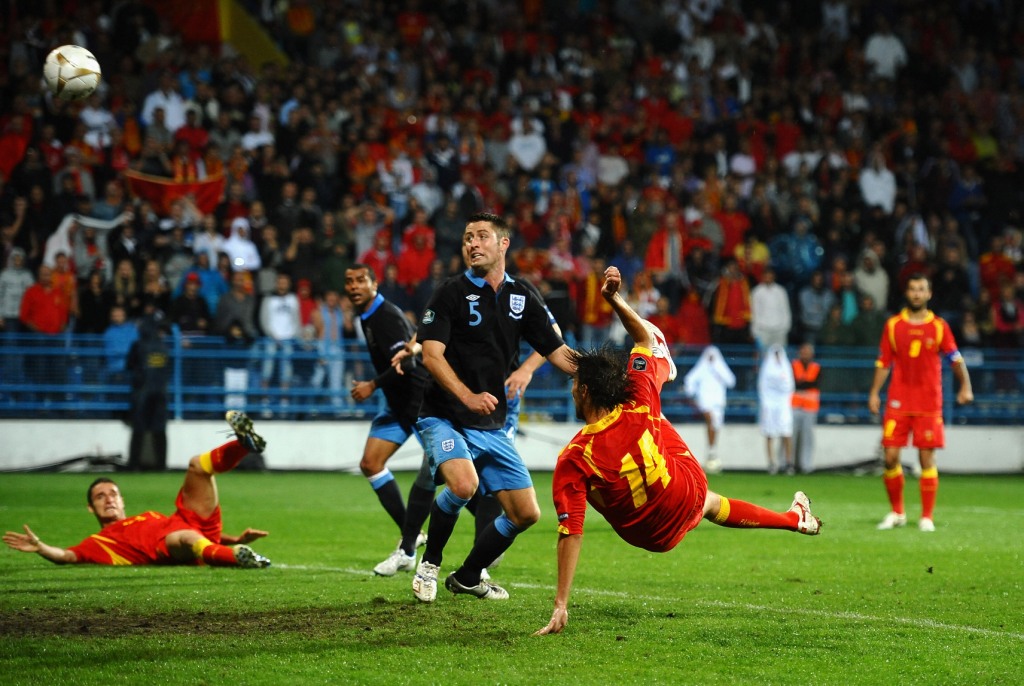On February 29 at the bijou Bonifika Stadium in Koper, Scotland take on Slovenia in one of those rather pointless friendly internationals.
The match takes place with Scottish independence high on the UK news agenda and a referendum expected in 2014.
You might think the fortunes of the Tartan Army have little if anything to do with the complexities of Scotland’s constitutional arrangements with the rest of the United Kingdom.
Strictly speaking, you would be right.
But I can’t help thinking that football may have its part to play in the debate that will shape the outcome of the forthcoming plebiscite.
And Scotland’s opponents Slovenia help to illustrate why.
You see, there is a significant body of evidence to suggest that newly-independent nations punch well above their weight in international football – and Slovenia, 21 this year, has been one of them.

With a population of only two million, well under half Scotland’s, Slovenia has qualified for two World Cup final tournaments and a European Championship since winning independence in 1991.
And there are plenty of other examples:
Croatia, which gained independence in the same year and which also has a smaller population than Scotland, achieved the stupendous feat of coming third in the 1998 World Cup.
The country in the red and white checked shirts were deprived of the final only by the only two goals defender Lilian Thuram ever scored in 142 games for France.
In 2010, Montenegro – independent since 2006 and with a population similar to Glasgow’s never mind Scotland’s – drew with England at Wembley.

And this after consecutive Euro-qualifier wins over Wales, Bulgaria and Switzerland.
That same year, I was present in Johannesburg when Slovakia, with a population around the same size as Scotland’s and independent since 1993, slammed three goals past the storied rearguard of world champions Italy to knock them out of the 2010 World Cup.
It has to be said that evidence from the newly-independent nations that broke away from the former Soviet Union is less compelling, although Latvia, with a population similar to Slovenia’s, made the finals of Euro 2004, where they held Germany to a draw.
Other former Soviet nations have started to make a name for themselves in other sports, notably Kazakhstan in boxing and cycling and Georgia in rugby.
The Azerbaijani capital of Baku, moreover, is bidding for the 2020 Summer Olympics – something that it is hard to imagine happening in Soviet days.
And while the Ukrainian city of Kyiv – which is set to stage the final of Euro 2012 – would almost certainly have hosted matches in a Soviet World Cup or European Championship, it is harder to imagine Lviv, Kharkiv or Donetsk having done so.
Scottish independence, then, it could be argued, would improve the national football team – currently languishing between Iran and Panama at 48 in the FIFA rankings.

That is 21 places below little Slovenia – and lower than other recently-independent nations Croatia (currently ranked 9th), Bosnia-Herzegovina, homeland of Edin Džeko (pictured), (19th), Slovakia (38th), Armenia (41st) – and only three places above tiny Montenegro.
So when, at some point in the next two years, Alex Salmond, Scotland’s First Minister, plays the football card, remember you read it here first.
There is, admittedly, a flipside and, for Scottish fans, it is a grave one: namely that some evidence exists to suggest that Scottish independence might make the England team better too.
Grounds for thinking this come from Africa, host-continent of the most recently-subdivided nation, Sudan – which was split into two countries only last year.
A few months after this, Sudan, now minus South Sudan, showed up at the 2012 African Cup of Nations.
The team duly notched up its first appearance in the competition’s last eight for 36 years.
I’ll leave it to Scots to say whether this risk of a spin-off ‘independence effect’ on England is a price worth paying.
David Owen worked for 20 years for the Financial Times in the United States, Canada, France and the UK. He ended his FT career as sports editor after the 2006 World Cup and is now freelancing, including covering the 2008 Beijing Olympics and 2010 World Cup. Owen’s Twitter feed can be accessed here.

